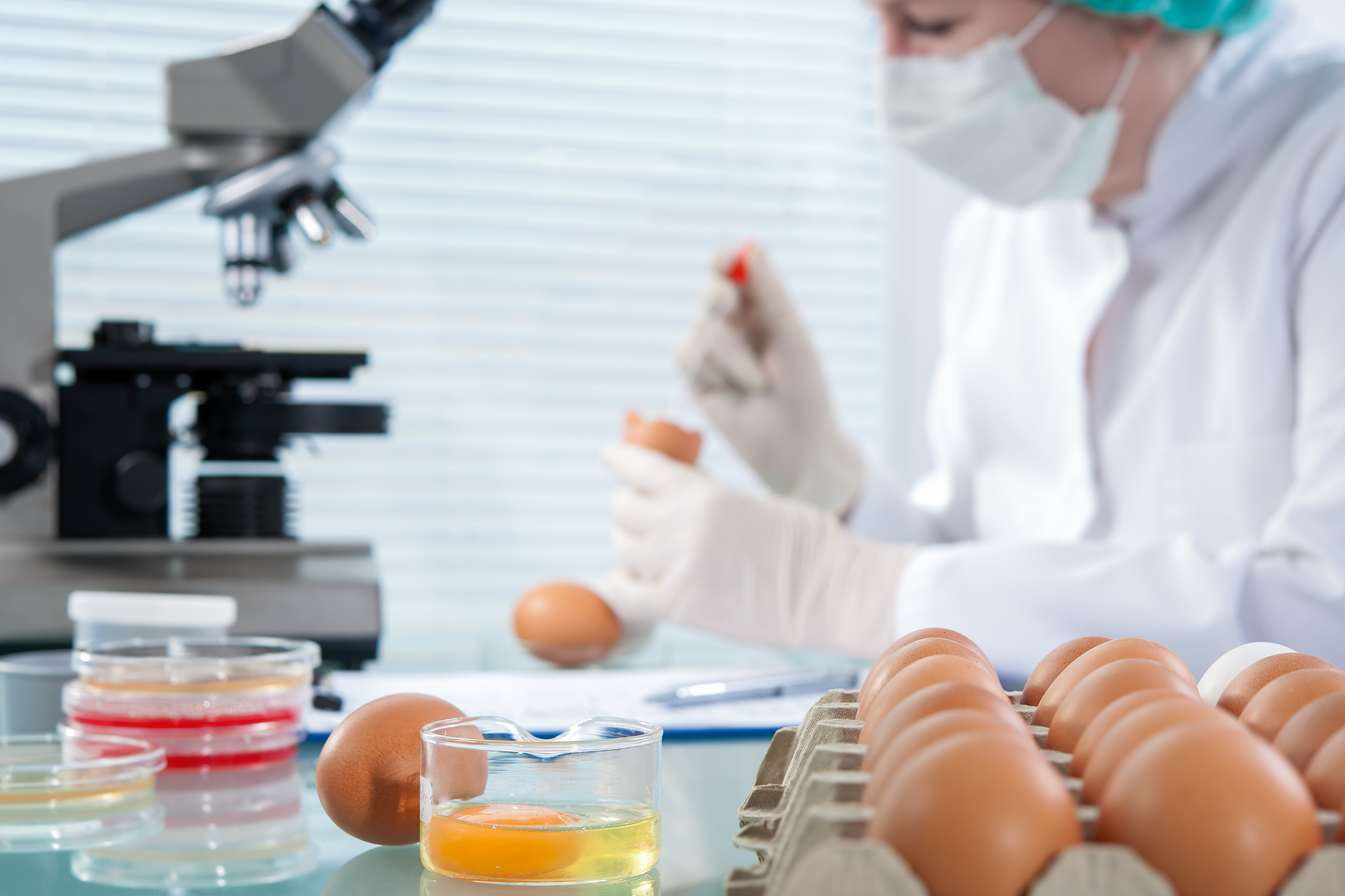We use cookies to give you a better experience on our website. Learn more about how we use cookies and how you can select your preferences.
OmnisOva - Creating Allergen Safe Eggs

Egg allergy is a global food safety problem that is estimated to impact over 40 million children. Allergic reactions can range from mild, such as hives, to severe, such as anaphylaxis or even death. Avoiding eggs can be challenging, with even small amounts triggering a reaction. For unknown reasons, it is taking many children much longer to ’outgrow‘ their allergy, and some remain highly allergic for life. To date, there exists no safe solution other than to try and avoid egg containing foods.
With the support of a $1.47 million Cooperative Research Centres Project (CRC-P) grant, OmnisOva is working with industry and CSIRO to develop a new line of chickens where a key protein responsible for allergic reactions, ovomucoid (OVM), has been removed. The project will also develop processing methods which destroy the remaining allergens, ensuring these eggs are safe to eat by those with egg allergies.
The delivery of an allergen safe egg product to the market will be a game changing outcome for the up to 10% of children and ~1% of adults that have an allergy to eggs, as well as for food manufacturers who currently have had to separate egg products and create dedicated production lines for allergy-friendly products.
Allergen removed with gene-editing
OmnisOva aims to have the first gene edited animal food product on the Australian market. Revolutionary gene editing technology has been used to remove part of the OVM gene, with the first gene deleted chicken hatched by the OmnisOva team. This Australian first achievement is part of a conventional breeding program to establish a chicken flock which will produce OVM-free eggs. Research is also being undertaken to investigate the most appropriate processing methods to denature the remaining allergens. This will help to ensure OmnisOva’s eggs are available for a wide range of free-from food products which use egg ingredients.
With advanced food processing techniques, the OVM free egg will undergo extensive testing to confirm they do not contain the allergen. The testing will also demonstrate their improved safety as a food product.
Project to build on Australia’s strengths
The collaboration is aiming to create a new segment in the Australian egg market. That would translate into the approximately $220 billion (2023) world egg market and allow manufacture at scale of this life-changing product.
The development and successful commercialisation of this product will pave the way for other Australian companies and researchers to explore the potential of genome editing in food products and food production. This will create new opportunities for growth and innovation in the industry.
The development of this novel biotechnology, supported through CRC-P grant funding, will have direct benefits for Australian primary egg producers and food manufacturers. The industries are ideally placed to leverage Australia’s regional competitive strengths to access large and fast-growing Asian markets. These markets have an ever-increasing focus on premium quality foods, providing an opportunity for Australia’s egg and food industry to grow and create new jobs.
-
Find out more about the Cooperative Research Centres Projects Grants.
Cooperative Research Centres Projects (CRCP) Grants